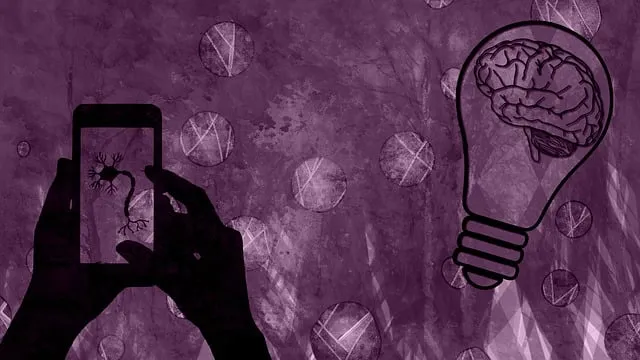Crisis Intervention Teams (CITS) are vital in mental healthcare, especially in Greenwood Village, where specialized services are key. Comprising professionals and volunteers, these teams offer immediate crisis support through training programs that teach skills for navigating complex situations, promoting positive thinking, and facilitating mental wellness journaling. Kaiser Permanente's model revolutionizes crisis intervention by empowering employees and community members with compassion, self-care, empathy, and evidence-based techniques to manage acute crises. This program improves patient safety, outcomes, response times, and collaborative care environments while facing challenges like time constraints and diverse patient populations. Despite hurdles, the long-term gains in care quality and staff well-being make CIT training a valuable investment for organizations like Kaiser Permanente in Greenwood Village's mental health facilities.
Crisis Intervention Team (CIT) training programs are a vital resource in mental health care, offering essential tools for non-clinical personnel to handle crises effectively. This article delves into the significance of CITs, highlighting Kaiser Permanente’s innovative approach with the Greenwood Village Model. We explore the benefits and challenges of implementing these programs, focusing on real-world applications and lessons learned from a leading provider like Kaiser Permanente.
- Understanding Crisis Intervention Teams: A Vital Resource in Mental Health Care
- Kaiser Permanente's Approach to Training: The Greenwood Village Model
- Benefits and Challenges of Implementing crisis intervention team training programs
Understanding Crisis Intervention Teams: A Vital Resource in Mental Health Care

Crisis Intervention Teams (CITS) are a vital resource within the mental health care landscape, particularly in communities like Greenwood Village, where access to specialized services is crucial. These teams, often comprised of healthcare professionals and volunteers, play a critical role in providing immediate support during moments of crisis. Training programs for CITS members ensure they’re equipped with the necessary skills to navigate complex situations, offering guidance on stress management techniques, promoting positive thinking, and facilitating mental wellness journaling exercises.
The integration of these teams into mental health care systems, such as those managed by Kaiser Permanente, underscores a commitment to proactive crisis prevention and intervention. By empowering individuals with tools for managing stress and fostering positive thinking, CITS contribute to a holistic approach to mental wellness. This strategy not only addresses immediate crises but also supports long-term mental health stability within the community.
Kaiser Permanente's Approach to Training: The Greenwood Village Model

Kaiser Permanente, a leading healthcare organization, has pioneered an innovative approach to crisis intervention team training through its Greenwood Village Model. This program focuses on empowering employees and community members to effectively support individuals facing mental health crises. By fostering a culture of compassion and understanding, Kaiser Permanente aims to reduce the stigma associated with mental illness.
The Greenwood Village Model incorporates comprehensive training in self-care practices, empathy building strategies, and evidence-based techniques for crisis intervention. Participants learn to recognize early signs of distress, provide immediate support, and connect individuals with appropriate resources. Through role-playing scenarios and interactive workshops, this model ensures that team members are equipped to handle crises with confidence and care, ultimately improving outcomes for those facing mental health challenges.
Benefits and Challenges of Implementing crisis intervention team training programs

Implementing crisis intervention team training programs offers significant benefits, especially in high-pressure settings like Kaiser Permanente mental health facilities in Greenwood Village. These programs equip healthcare professionals with the skills to recognize and manage acute mental health crises, enhancing patient safety and outcomes. By fostering a culture of support and collaborative care, teams can reduce the burden on individual practitioners, improve response times, and provide more effective interventions. Furthermore, regular training promotes ongoing learning and adaptation to evolving best practices in mental health crisis management.
However, challenges exist when introducing such programs. One significant hurdle is balancing the need for comprehensive training with time constraints and heavy workloads. Integrating crisis intervention training into an already demanding schedule requires strategic planning and organizational support. Additionally, ensuring cultural sensitivity and adaptability of the training to diverse patient populations is crucial. Despite these challenges, the long-term gains in patient care quality and staff well-being make crisis intervention team training programs a vital investment for organizations like Kaiser Permanente, ultimately contributing to a more robust mental wellness ecosystem.
Crisis intervention team (CIT) training programs, like Kaiser Permanente’s successful Greenwood Village model, play a crucial role in enhancing mental health care. By equipping healthcare professionals with the skills to navigate and de-escalate crises effectively, these programs not only benefit individuals in acute distress but also contribute to better outcomes in mental health treatment. While implementing CIT training comes with challenges, as discussed, the benefits are substantial. Kaiser Permanente’s approach, centered around community engagement and continuous learning, offers a promising path forward for improving mental healthcare services, ultimately reflecting the urgent need for such initiatives in today’s world.






